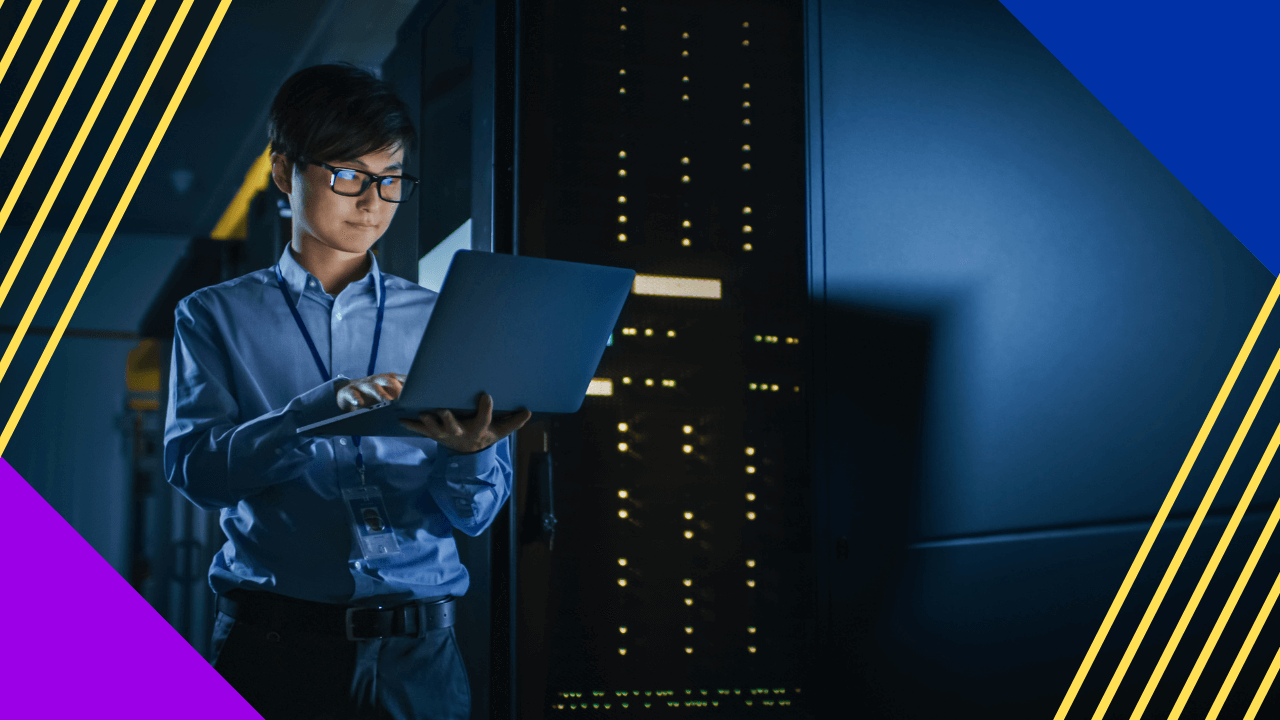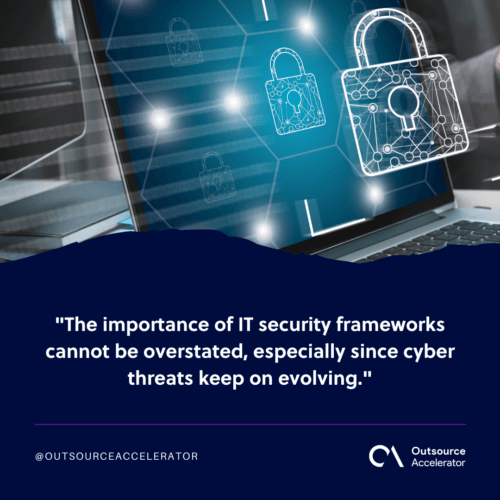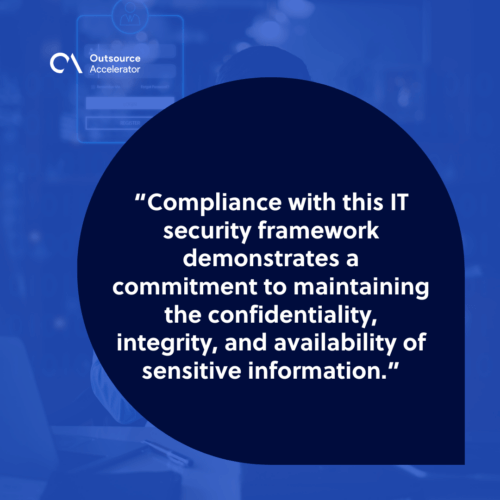IT security frameworks you need to update in 2024

Just as you think every company in the world is aware of cybersecurity risks, some firms still struggle to adapt due to various factors, such as limited resources and outdated technology.
Unfortunately, when companies fail to adapt to the evolving security needs of the business environment, they become increasingly vulnerable to data breaches.
Safeguarding digital assets hinges upon diligent implementation and maintenance of IT security frameworks. These serve as foundational pillars in ensuring robust protection against cyber threats.
Within this discourse, we’ll explore the significant security frameworks that every company must have and update in 2024.
We’ll also illuminate the critical role of these frameworks and how ConnectOS can help with this area.
Importance of IT security frameworks
The importance of IT security frameworks cannot be overstated, especially since cyber threats keep on evolving.
These frameworks serve as structured guidelines, offering a systematic approach to identify, assess, and mitigate security risks within an organization’s IT infrastructure.

Let’s discuss other factors that make them so important:
Covers industry standards
IT security frameworks serve as comprehensive blueprints that not only outline industry best practices but also cover prevailing standards. They form a robust foundation for organizations aiming to fortify their digital defenses.
By adhering to these frameworks, businesses gain access to a structured roadmap tailored to their industry’s specific security needs.
This alignment not only ensures that organizations meet mandatory compliance mandates but also fosters a culture of security consciousness across the entire sector.
Evaluate security practices of vendors
The evaluation of vendors’ security practices is a critical aspect of cybersecurity management, where third-party partnerships are commonplace.
Third-party vendors bring valuable expertise and resources to organizations. However, their involvement may also introduce potential security vulnerabilities that can compromise the integrity of sensitive data and systems.
IT security frameworks can systematically assess the security posture of these vendors, ensuring they adhere to stringent security standards and protocols.
This approach involves conducting comprehensive assessments of vendors’ security policies, procedures, and controls to identify potential gaps that may pose risks to the organization.
Mitigate cybersecurity risks
With each passing day, malicious actors develop new techniques and tactics to exploit vulnerabilities and breach organizational defenses.
IT security frameworks provide a structured and systematic approach to identifying and addressing e-commerce cybersecurity issues.
They offer guidelines for assessing the security posture of an organization. These frameworks identify vulnerabilities in its IT infrastructure and implement measures to mitigate the risks effectively.
How often should you update IT security frameworks?
In general, businesses should review and update their IT security frameworks annually or whenever significant changes occur within the organization.
This includes changes in technology infrastructure, such as the adoption of new software or systems, as well as organizational changes like mergers, acquisitions, or restructuring.
IT security frameworks you need to update
Let’s explore some of the key frameworks that warrant attention in 2024:
NIST Cybersecurity Framework
The NIST Cybersecurity Framework provides a comprehensive set of guidelines, best practices, and standards for managing cybersecurity risks.
This is one of the most important IT security frameworks, for it enhances the resilience of organizations against cyber threats and improves threat detection.
ISO/IEC 27001
ISO/IEC 27001 is an internationally recognized standard that outlines the requirements for establishing, implementing, maintaining, and continually improving an Information Security Management System (ISMS).
Compliance with this IT security framework demonstrates a commitment to maintaining the confidentiality, integrity, and availability of sensitive information.
GDPR and other privacy regulations
This is one of the significant IT security frameworks that always need to be prioritized.
General Data Protection Regulation (GDPR) imposes stringent requirements for the protection of personal data. It mandates the implementation of robust security measures to mitigate the risk of data breaches.
Industry-specific frameworks
Industry-specific IT security frameworks tailored to the nuances of a particular sector can be invaluable in guiding organizations toward compliance and best practices.
Whether it’s the PCI DSS or HIPAA, adherence is essential for maintaining regulatory compliance daily.
ConnectOS IT security services
ConnectOS understands the critical role that IT security frameworks play in safeguarding your organization’s digital assets and mitigating cyber risks.
It leverages its expertise and industry insights to offer a comprehensive suite of IT security services tailored to your unique needs.
This premier offshoring firm has seasoned IT experts. They conduct thorough security assessments to identify vulnerabilities and assess your organization’s compliance with relevant regulations and frameworks.
ConnectOS also offers comprehensive security training programs to empower your employees with the knowledge and skills needed to recognize and respond to security threats effectively.
You may contact ConnectOs directly to give you more information about their IT security and compliance services.








 Independent
Independent




